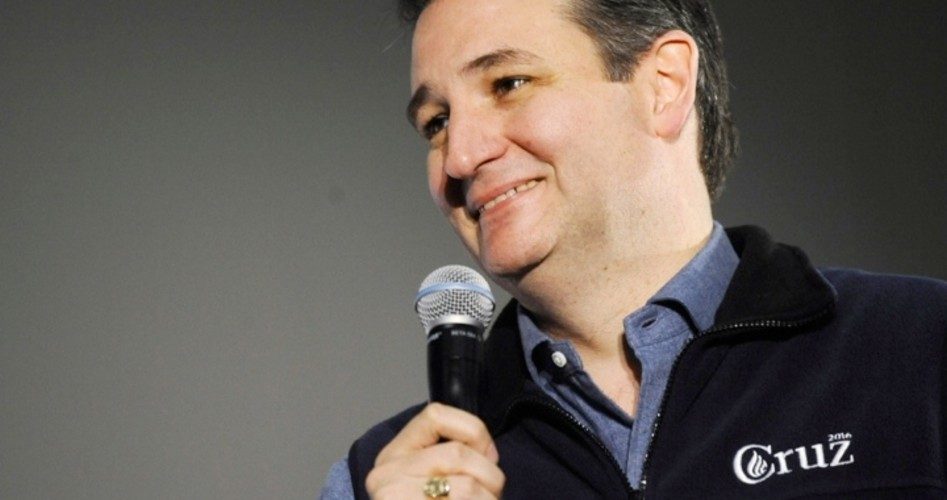
Ted Cruz’s constitutional qualification to serve as president is a question that is critical to the continuation of this self-governing Republic, and it may be that the states can play their intended part as protectors of the rule of law and the liberties that rule protects.
As The New American and others have reported, there are legitimate questions about whether Ted Cruz — a man born in Canada to a Cuban father and American mother — conforms to the requirement set out in Article II of the Constitution that the president of the United States be a natural-born citizen.
While it is certain that it is appropriate for those committed to upholding the republican form of government and the rule of law that is its foundation to insist that anyone seeking the highest executive office in the land be constitutionally eligible for that office, it is unlikely that a private citizen could successfully block Cruz’s candidacy in a federal court.
Federal courts are loathe to decide “political questions” particularly when those questions place judges in the unenviable position of being tasked with upholding the Constitution at the cost of disqualifying a man who, if elected anyway, would wield immense power.
There is, however, precedent for a such a situation. In 2008, an elector from California challenged the eligibility of John McCain to serve as president, given that he was born in the Panama Canal Zone.
Judge William Alsup of the U.S. District Court for Northern California heard the case and ruled that Article III of the Constitution places the deciding of such “political questions” outside the jurisdiction of the federal courts:
“Arguments concerning qualifications or lack thereof can be laid before the voting public before the election and, once the election is over, can be raised as objections as the electoral votes are counted in Congress. The members of the Senate and the House of Representatives are well qualified to adjudicate any objections to ballots for allegedly unqualified candidates,” he held.
As explained above, such a decision was to be expected from a federal judge whose sphere of power is set by Article III.
State judges, however, are not bound by the Constitution’s separation of powers. In fact, the Tenth Amendment protects the “numerous and indefinite” powers of the states that created the federal authority.
Another provision of the Constitution, in fact, seems to specifically reserve to the states the power to decide the eligibility of candidates for federal office.
Article I, Section 4 reads, “The times, places and manner of holding elections for Senators and Representatives, shall be prescribed in each state by the legislature thereof.”
In an article reporting on the authority of the states to determine the eligibility of Ted Cruz (or any other candidate of questionable constitutional qualification), the Washington Post cited a scholarly analysis of the issue by Ohio State University law professor Daniel Tokaji printed in the Michigan Law Review:
Far-fetched as that seems, supporters of John F. Kerry’s 2004 presidential campaign brought a state court challenge to Ralph Nader’s candidacy based on a state law that, according to Tokaji, “prohibited candidates from running in a general election after running in state primaries.”
The challengers lost, but the Pennsylvania Supreme Court at the same time said, “There was no doubt as to the state court’s ability to entertain a challenge to a presidential candidate’s qualifications in the course of determining whether to deny that candidate access to the state ballot,” according to Tokaji, even though those qualifications are set by the Constitution.
To constitutionalists and friends of liberty, this approach has not only merit, but the hope of simultaneously shoring up the sovereignty of the states and of protecting the union from the dangerous precedent of putting aside constitutional qualifications for federal officers.
No less a “reactionary” mouthpiece than the Washington Post describes the details of the legal maneuvers that could result in a judicial hearing on the question of Cruz’s qualification:
If a state, perhaps through a renegade secretary of state, were to actually wipe a candidate’s name from the ballot, the issue might then truly be aired if not answered. The candidate would challenge the decision, and that challenge would then probably wind up at the Supreme Court.
As a result, “state-court litigation seems like the most appealing path for the resolution of such a dispute, with the possibility of review in the U.S. Supreme Court. Neither standing,” the Post writes, “nor the political question doctrine should serve as a barrier to such a review…. This avenue seems less fraught with peril than congressional resolution of the matter.”
There are statements in support of this novel defense of the Constitution found in the writings of the Founders.
In The Federalist, No. 39, for example, James Madison writes that under the Constitution, “The immediate election of the president is to be made by the states in their political characters.”
Later, in The Federalist, No. 44, Madison carries on with that theme, “The members and officers of the state governments, on the contrary, will have an essential agency in giving effect to the federal constitution. The election of the president and the senate, will depend in all cases, on the legislatures of the several states.” (Emphasis added.)
And, finally, from The Federalist, No. 45, “Without the intervention of the state legislatures, the president of the United States cannot be elected at all.”
While there are certainly many conservatives who support Ted Cruz’s candidacy for president, true friends of the Constitution will set aside personal preferences in favor of the perpetuation of the rule of law, demanding that all Americans advocate and abide by the Constitution’s provisions establishing the qualifications for president.
Photo of Sen. Ted Cruz: AP Images



